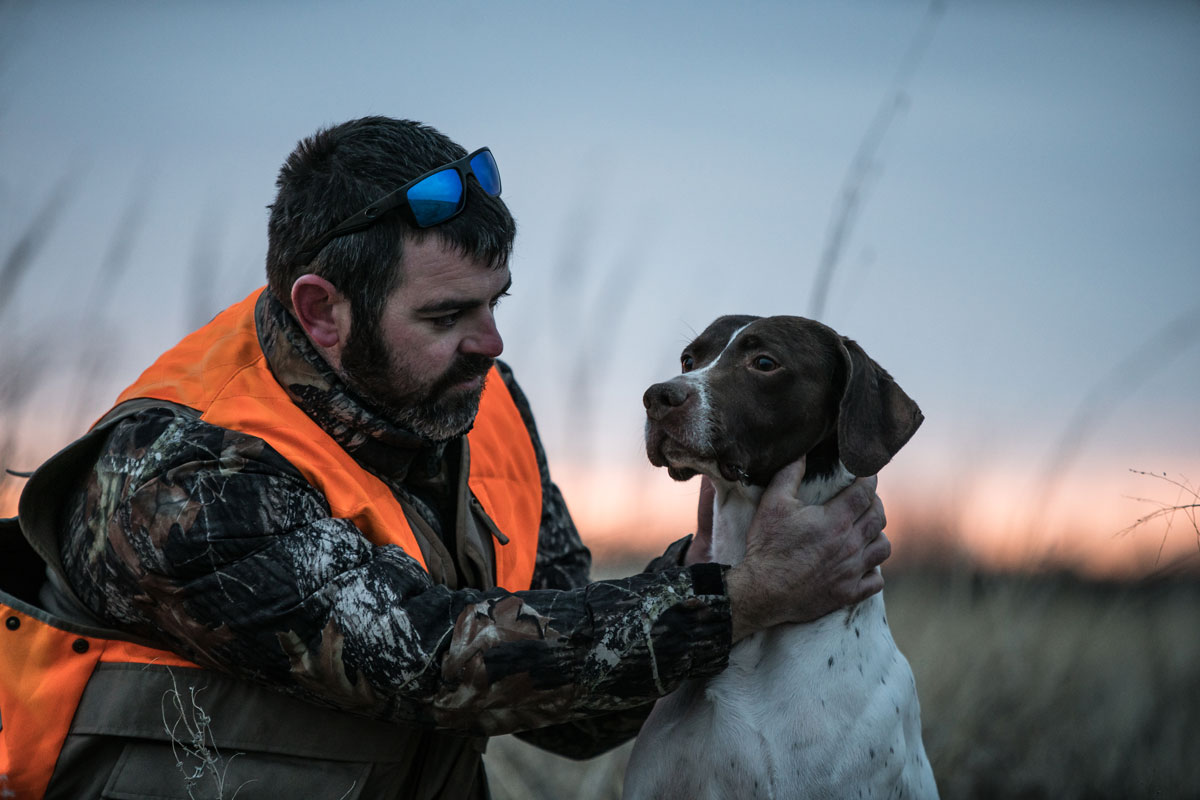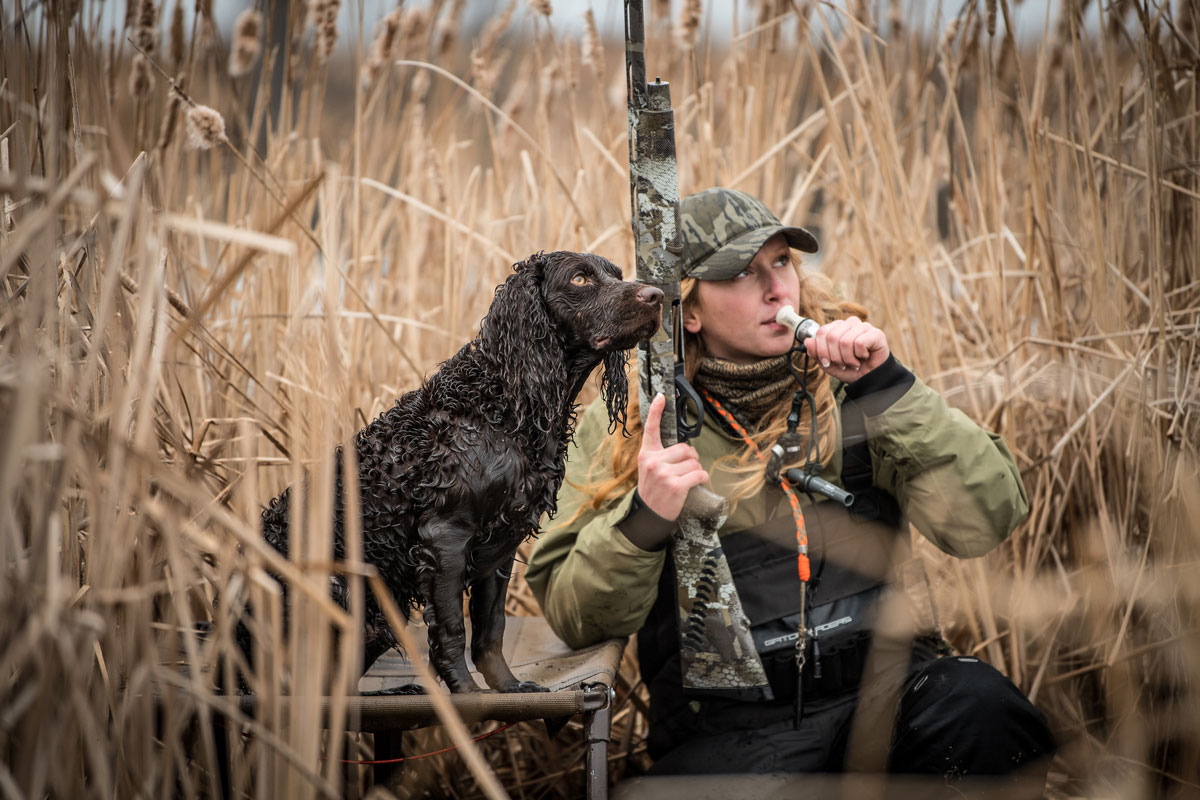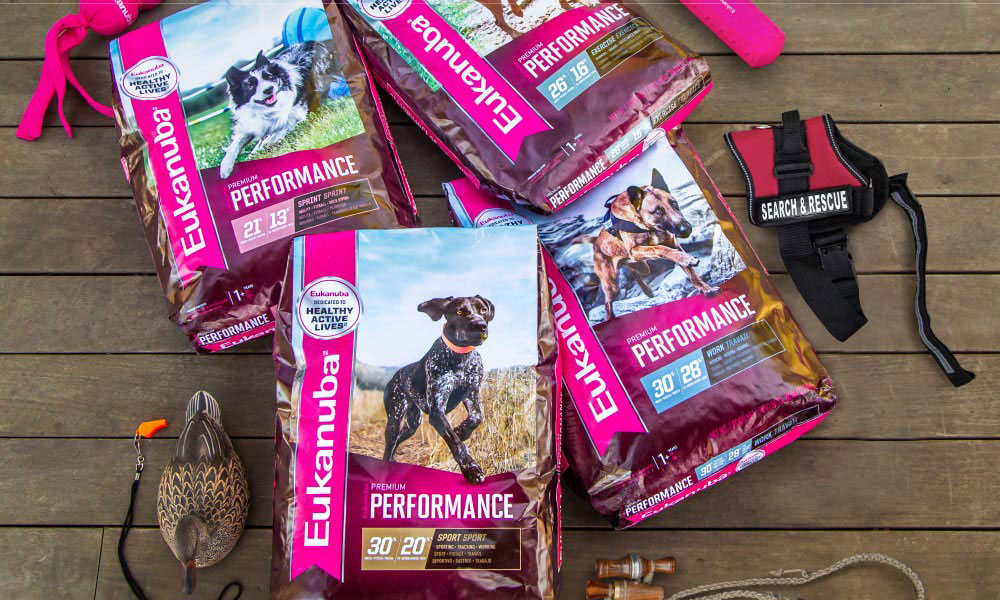By Ryan Sparks
Every sporting dog is different, which is why there is no one answer as to how much your dog should eat. Activity levels play a large role in determining how much food to feed beyond his daily basic needs. Creating a proper feeding program specifically tailored to your dog’s needs isn’t difficult, but it involves more than just scooping food into a bowl. Here are some important factors to consider when creating your dog’s feeding program.

Determine Your Dog’s Body Condition Score
Figuring out your dog’s body condition score is an easy way to determine if the dog is overweight, underweight or at an ideal weight. To obtain a body condition score, you need to conduct three checks: a rib check, a profile check, and an overhead check.
1. Rib Check: Run your finger over your dog’s rib cage. You should be able to feel individual ribs. If you need to push in with your finger to find a rib, your dog is carrying too much weight. If the ribs are clearly visible and stick out, it could mean the dog needs more calories in his diet.
2. Profile Check: Get on the same level as your dog while he is standing, and examine his profile from the side. You should see a tuck around his abdomen. If his abdomen appears expanded, the dog is overweight.
3. Overhead Check: Stand directly above your dog. The dog’s waist should be clearly visible, with a slight taper from the shoulders to the waist. If the dog’s pelvic bones jut out prominently, the dog is likely underweight. These checks should give you a good idea about where your dog stands, and you should keep them in mind as you determine your dog’s caloric needs. If you have any questions, consult your veterinarian.

Determine Your Dog’s Caloric Needs
Scientists use a simple formula to determine a dog’s basic caloric needs. First, take your dog’s ideal weight in pounds and divide it by 2.2 to convert it to kilograms. Then raise the dog’s weight to the ¾ power and multiply by 70. This number is a good estimate of how many calories your dog needs as a baseline. Dogs’ caloric needs go up as their activity level increases. Hunting season is often when dogs need the most calories.
For light work, multiply the daily caloric needs by 2. For moderate work, multiply by 3. For hard days in harsh conditions, multiply by up to 6. It’s also useful to consult the feeding guidelines listed on your specific dog food. Manufacturers often use the same formula and do the math for you.
Here’s an example for a 50-pound dog.
727 calories (basic daily caloric needs) times 2 = 1,454 calories per day for light work.
727 calories times 3 = 2,181 calories for moderate work.
727 calories times 6 = 4,362 calories for hard work.
Finally, divide the number of calories your dog needs by the kilocalories (kcals) per cup listed on your dog food packaging. This will give you an accurate idea of how much to feed your dog based on his activity level.
Develop an Optimal Feeding Schedule
When your dog eats is almost as important as what and how much he eats. Feed hardworking gun dogs twice daily with one third of their food in the morning, at least 3 hours before exercise, and the other two thirds at the end of day, a minimum of 2 hours after the hunt. The gap between eating and exercise gives the dog time to digest the food.

Consider a Performance Dog Food Optimized for Your Dog’s Activity Level
The diet you choose to feed your dog can have a big impact on his ability to perform at his peak. Diets like Eukanuba’s Premium Performance formulas are made from high-quality ingredients that are nutritionally dense. They provide an optimal balance of carbohydrates, protein, fat, minerals, vitamins, and antioxidants to help your dog maximize his potential.
Another factor to consider is matching dietary energy sources to your dog’s activity level. Some dogs need fuel for quick, intense bursts of activity, which comes from carbohydrates. Others need a diet with more fat for endurance to help them along their half or full day’s work. The range of carbohydrates, protein and fat found in Eukanuba’s Premium Performance line offers a tailored approach to fueling your dog with the energy he needs.
While feeding is not as simple as dumping food in a bowl, putting the extra care into your dog’s diet will help keep him healthier to hunt with you.




